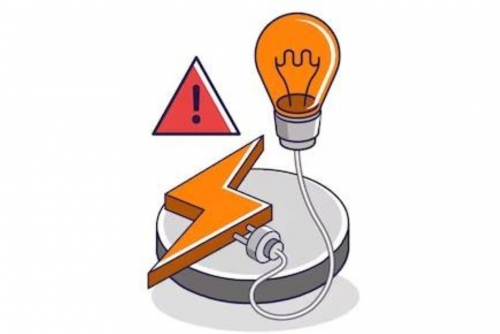The Electricity and Water Authority (EWA) in Bahrain has announced that households have 53 days to pay overdue electricity bills before facing disconnection. The countdown begins from the bill’s issue date, with reminders through text and email before power is eventually cut off. In response to a parliamentary question, the EWA also revealed plans to restructure the electricity and water sector with a proposed law that separates operational and maintenance tasks from regulation and monitoring. This move is inspired by successful examples from the Gulf Cooperation Council and aims to enhance oversight, strengthen financial accountability, and protect service quality while considering customers’ interests.
The EWA highlighted its structured approach in addressing overdue payments, emphasizing that monthly bills clearly display outstanding balances and customers receive reminders before further action is taken. Disconnection only occurs after an extensive warning period during the 53-day grace period. For those facing financial difficulties, the EWA offers options such as fixed monthly payment plans and instalments for overdue amounts to help customers maintain service while responsibly managing their finances. These measures and changes are part of the authority’s broader effort to improve services and ensure consumers benefit from reliable, high-quality utilities.
In terms of technology, the EWA discussed the benefits of smart meters in measuring energy use accurately. These advanced devices meet global performance standards and provide precise readings that help consumers monitor their usage and effectively manage their bills. With remote reading capabilities, smart meters eliminate the need for manual checks, reducing the risk of errors and cutting costs for site visits. Moreover, smart meters come with built-in protections like automatic power cutoff during overloading, preventing damage to household appliances and systems. They also simplify the process of activating or deactivating electricity accounts, allowing for quick switches via the government e-services portal.
Overall, the EWA’s efforts to improve services and support consumers through various payment options and advanced technology showcase their commitment to providing reliable and high-quality utilities. The restructuring of the electricity and water sector and the incorporation of smart meters demonstrate a proactive approach to enhancing oversight and ensuring financial accountability. By offering solutions for those facing financial difficulties and implementing advanced technologies like smart meters, the EWA aims to streamline processes, reduce errors, and ultimately safeguard the interests of their customers. Through these initiatives, the EWA is working to create a more efficient and customer-centric system for delivering electricity and water services in Bahrain.


























